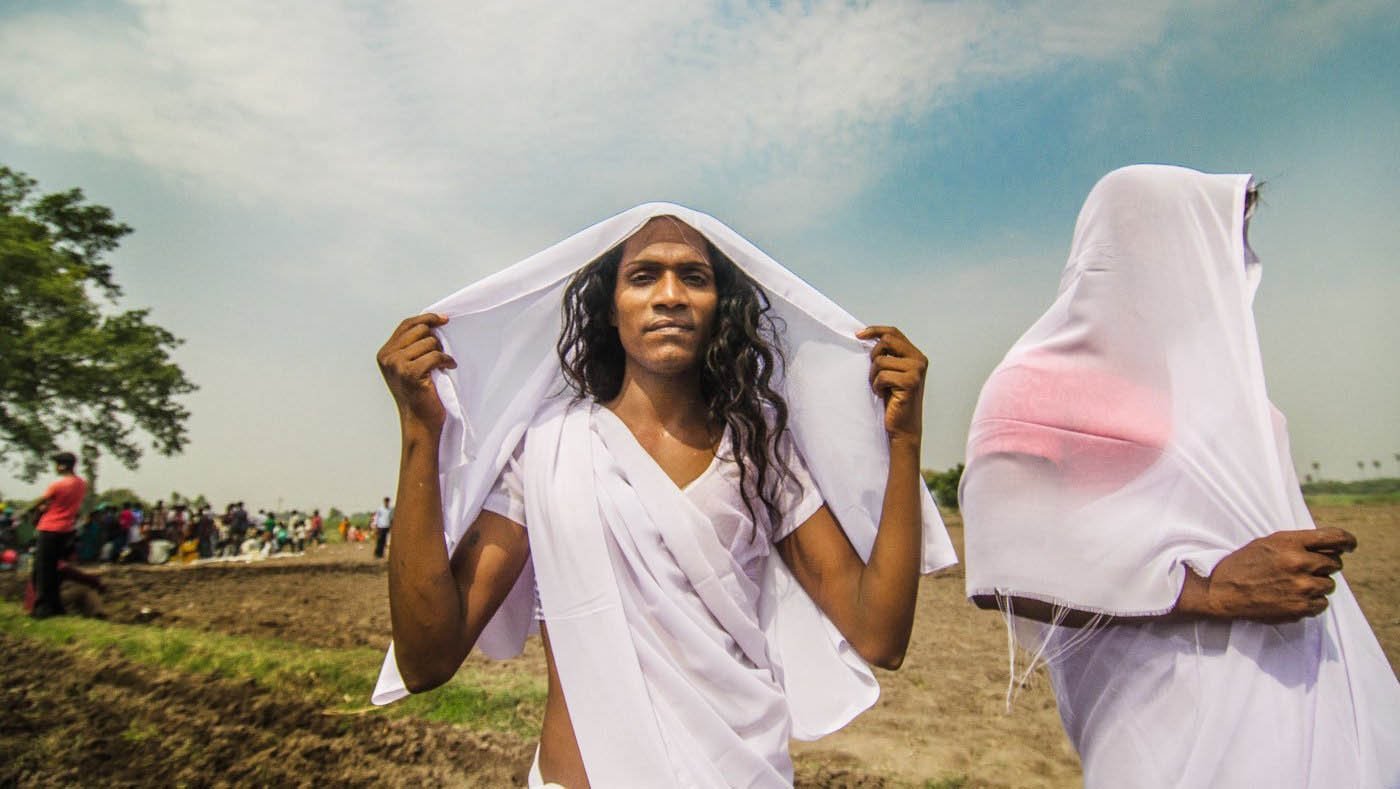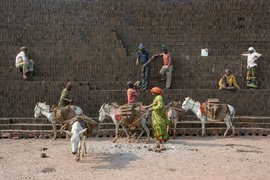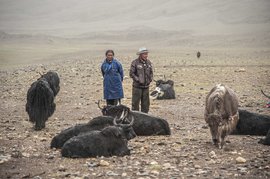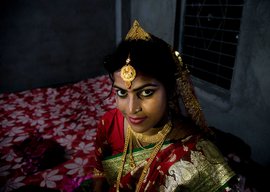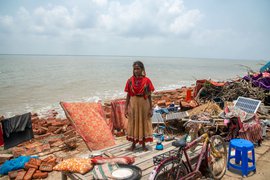The members of the transgender community in Tamil Nadu who generously shared time with me described themselves as 'aravani'. Only much later, I learned that many others in their community reject this term and describe themselves as Thirunangai. Respectfully, however, I have retained the term that the people I spoke to used in identifying themselves.
“This is our festival. For 10 days, we live a different life. I’ve been in a trance for the past few days, and I don’t want to come out of it,” says Jayamala, a 26-year-old aravani I met in Koovagam village of Viluppuram district in 2014. Jayamala is here for an annual festival that takes place in the month of Chithirai in the Tamil calendar (around mid-April to mid-May) and lasts for 18 days.
Many
transgender persons from across the country come to Koovagam for the beauty
pageants, music and dance competitions, and other events. Many come to be ‘married'
to Lord Aravan. This ‘wedding’ takes place at a temple devoted to Koothandavar (as Aravan is locally known),
and it’s an enactment of a story from the
Mahabharata
.
The story goes like this: Aravan, the son of Arjuna and Naga princess Ulupi, agrees to be sacrificed to goddess Kali so that the Pandavas can win the war against the Kauravas. His dying wish is that he is married. However, no one is willing to marry him since he will be sacrificed the next morning. So Krishna takes on female form as Mohini, weds Aravan – only to be widowed the morning after.
At the Koovagam festival, aravani s enact these rituals of marriage, sacrifice and widowhood. When I arrived, the marriage celebrations had begun. Inside, the temple priest was performing the wedding rituals for one aravani after another. Outside, aravani s were dancing, and buying garlands, thali s, bangles.
I met a group of aravanis from Bengaluru; Prajwala, the group leader, told me, “I have been coming here for 12 years. It’s difficult for us to live in this society. But this place gives me hope that someday we’ll be accepted. Becoming the wife of a deity is a recognition for us.”
While the festival is mostly a joyous event, it has a darker side too. The aravani s speak of sexual harassment by men in the crowds, and verbal abuse by the cops. But Ivy, a 37-year-old aravani , says, “Still, I come here and will continue to do so.” She disappears into the crowd. I wanted to ask her what brings her back every year. But the answer is evident: this is their festival. It’s where they are welcome for who they are.
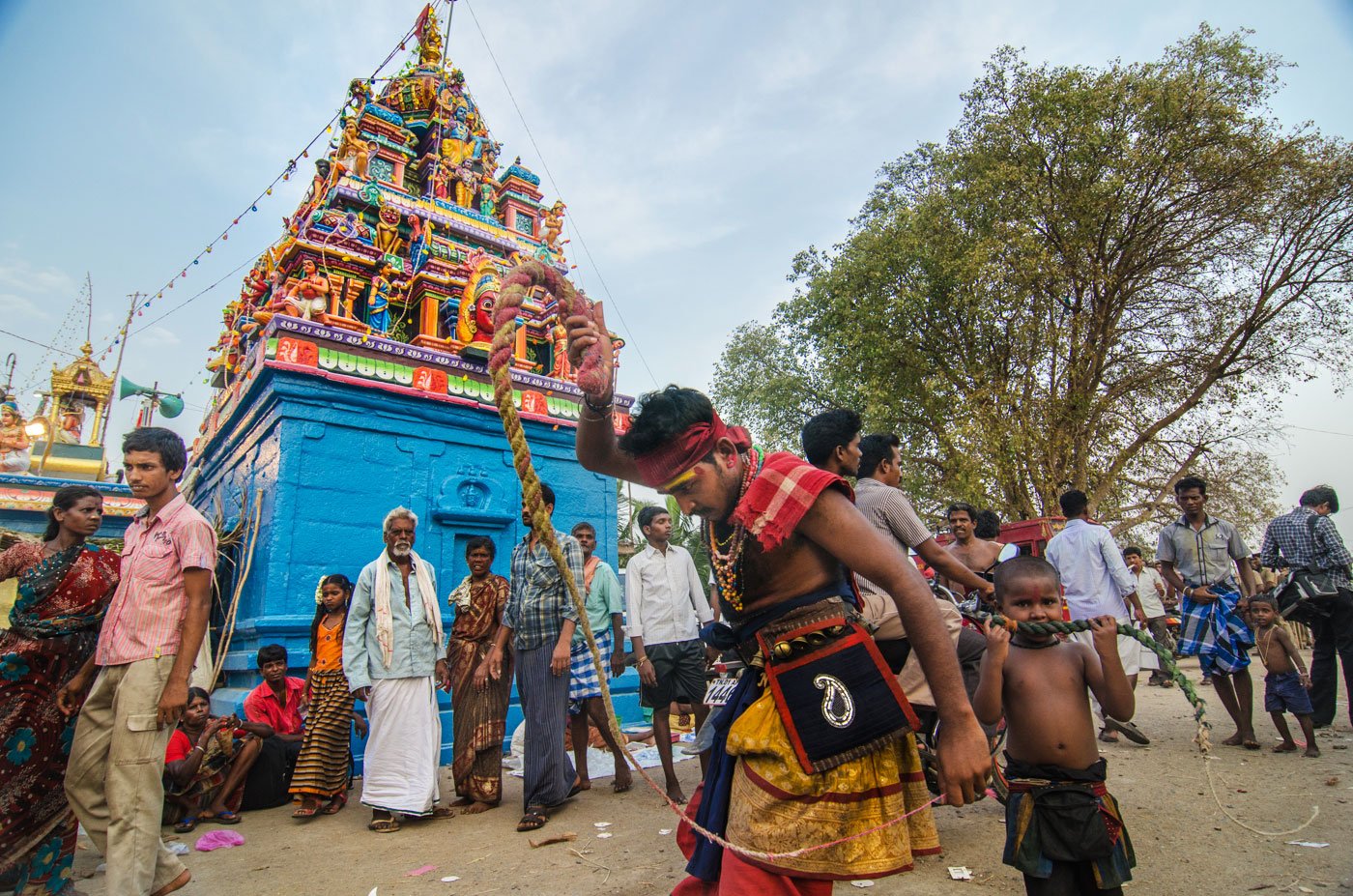
The temple dedicated to Lord Aravan (known locally as Koothandavar) is in Koovagam village, around 30 kilometres from Viluppuram town in Tamil Nadu
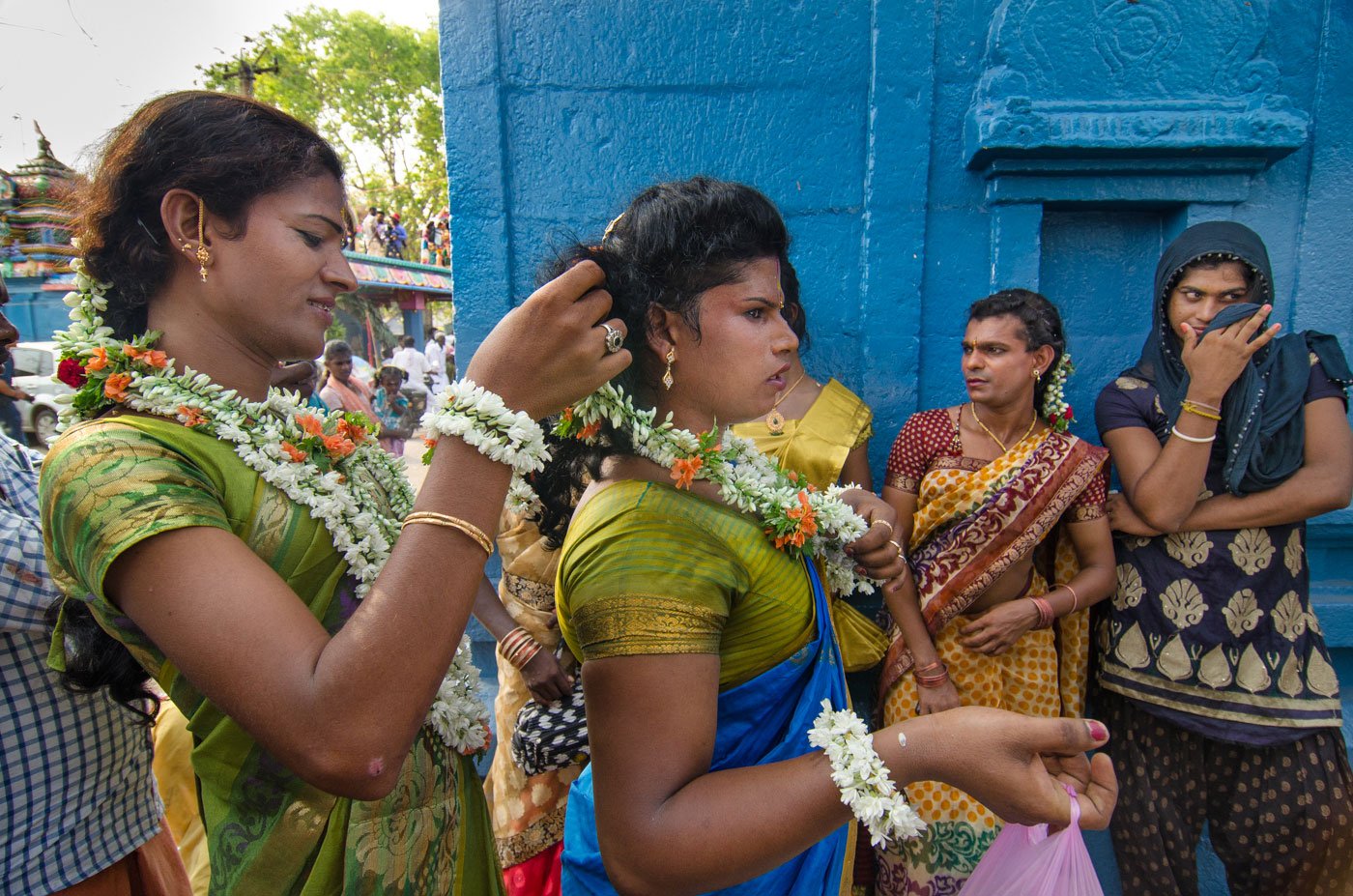
Aravanis enact a story from the Mahabharata in which they get married to Lord Aravan. Here, they are getting ready for the wedding
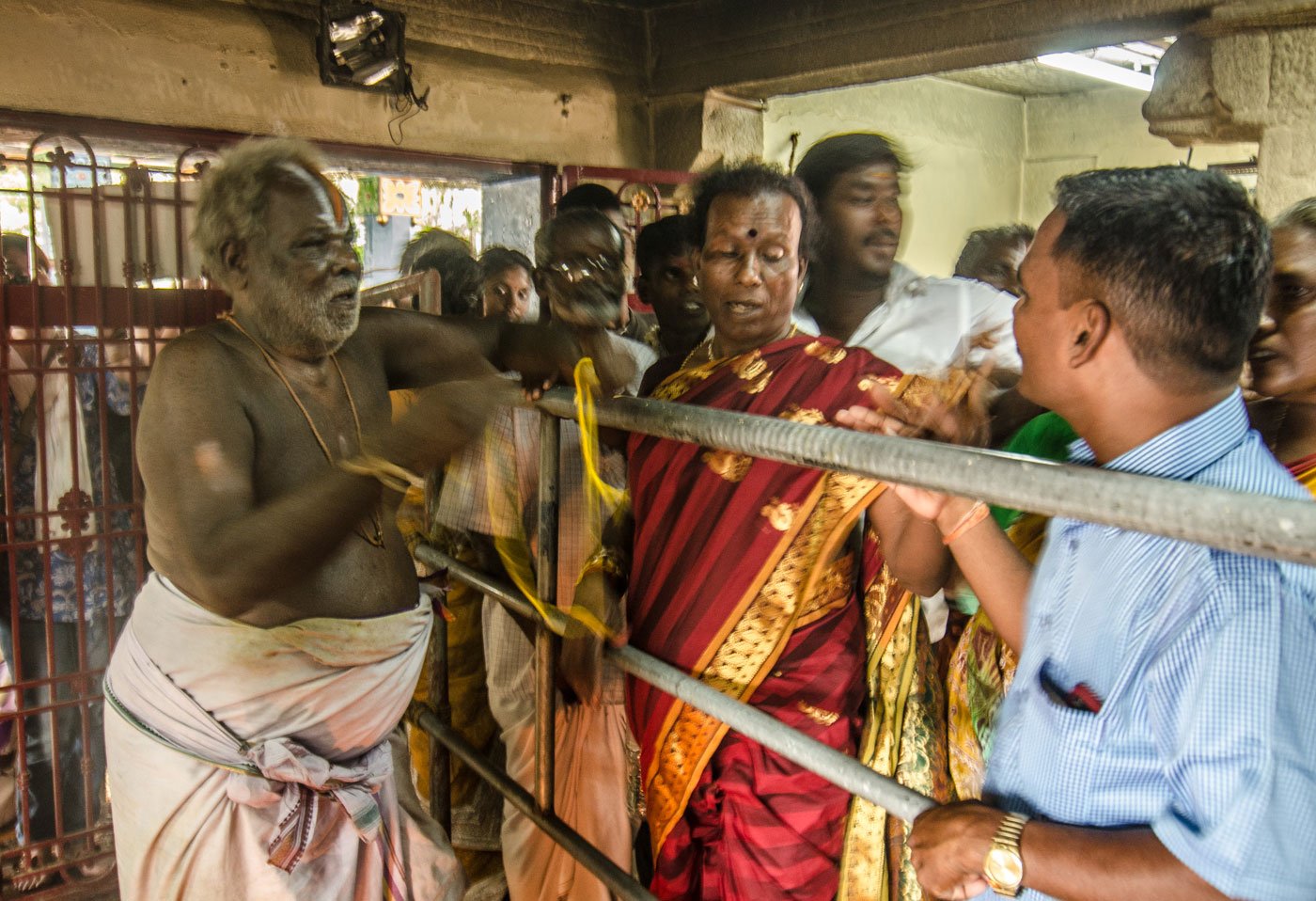
One of the priests at the Koothandavar temple begins the wedding rituals. He ties a yellow thread called thali around the neck of each aravani to consecrate her union with Aravan
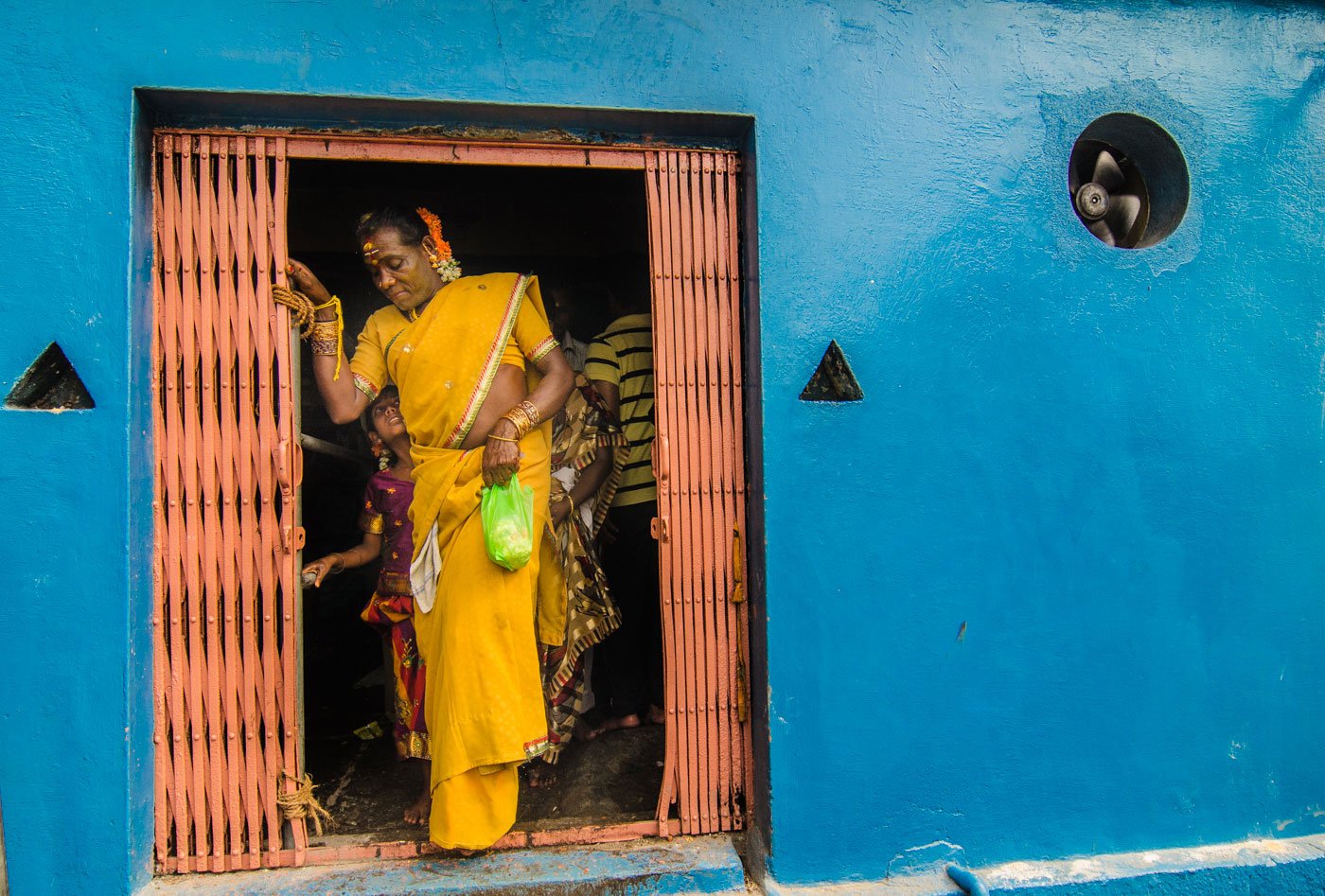
Married to her lord, an older aravani leaves the temple feeling content
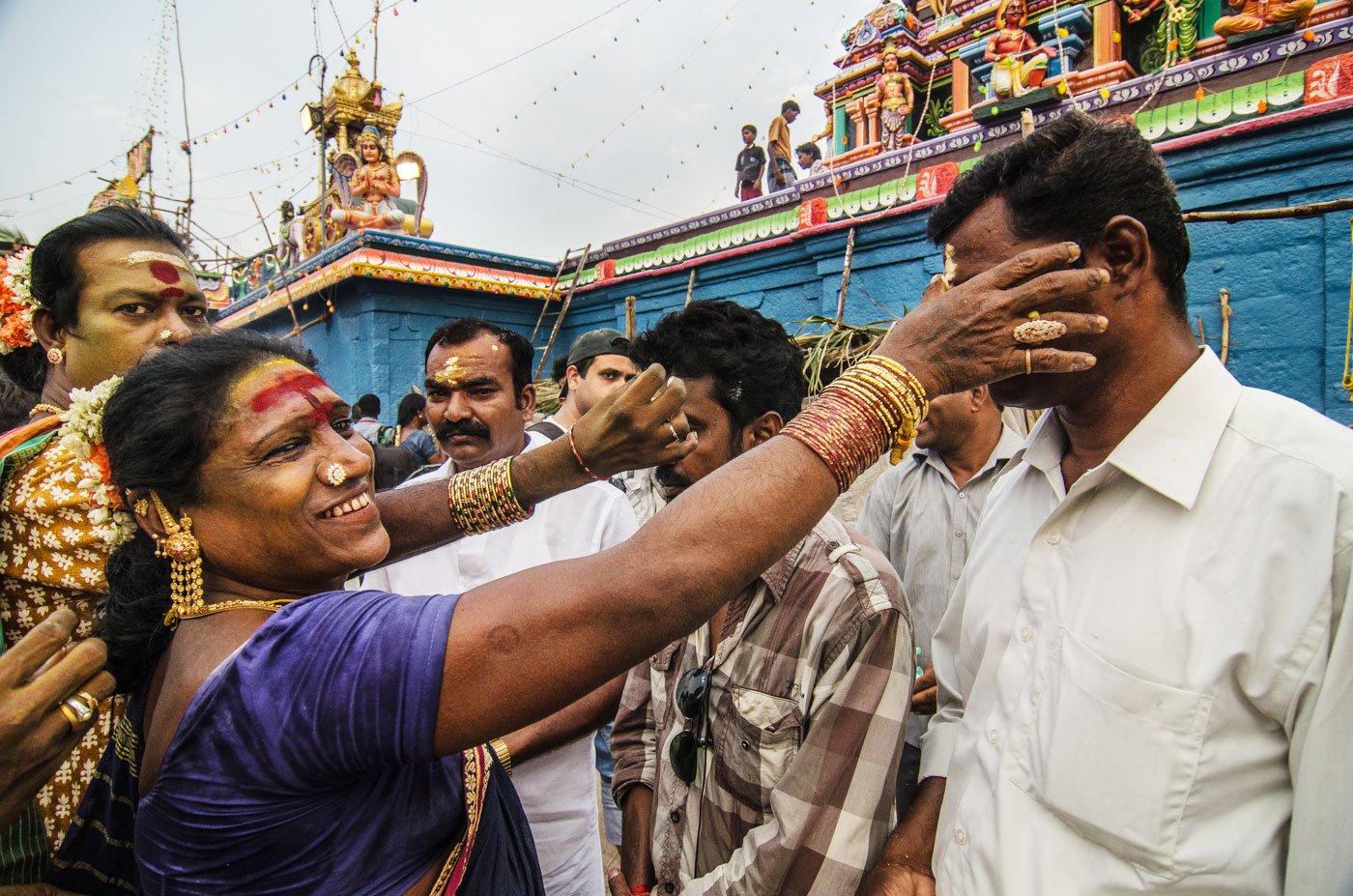
Despite the social ostracism that transgender women face, people also regard them as ‘lucky’. They gather outside the Koothandavar temple to receive blessings from aravanis
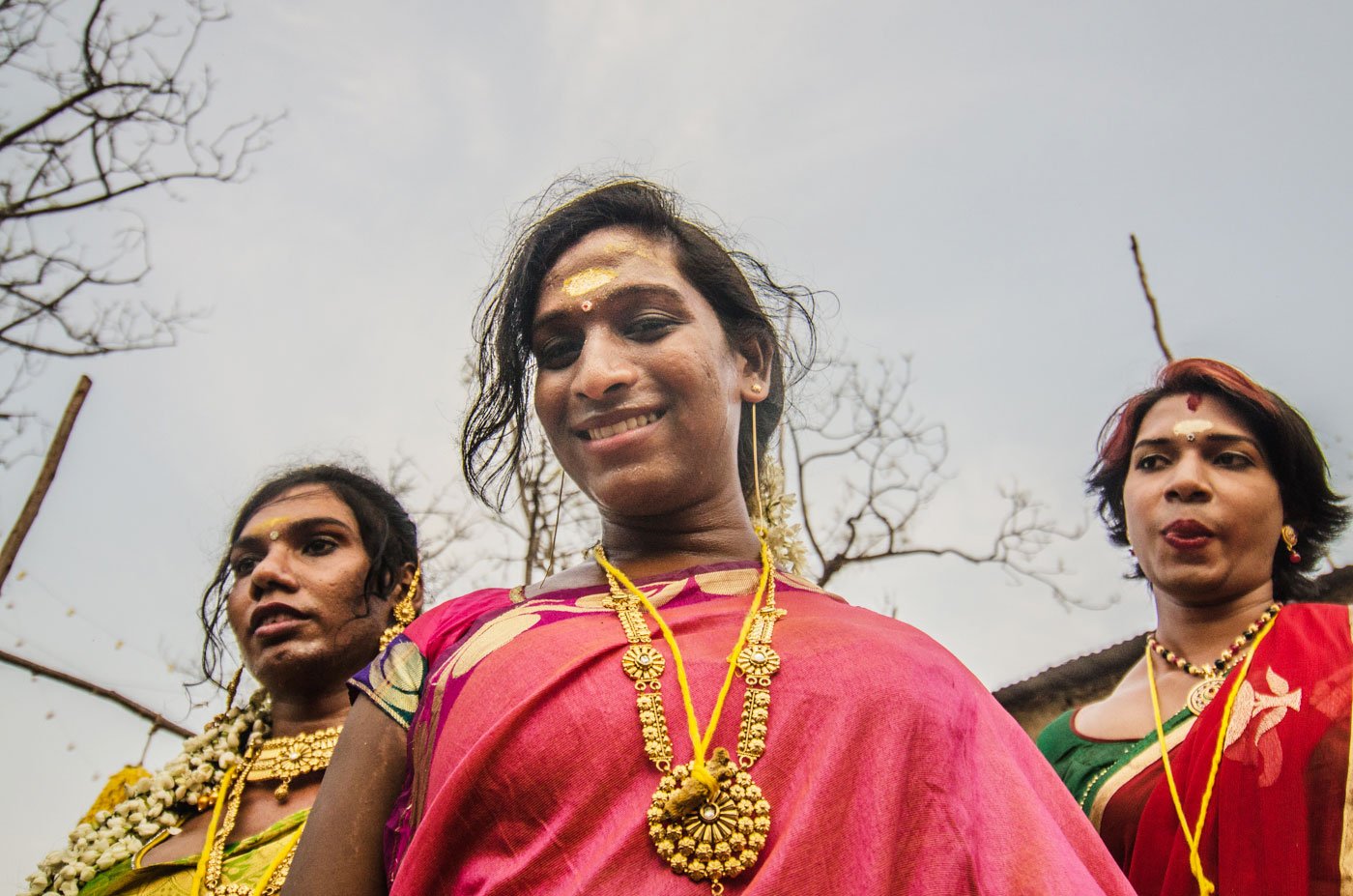
Pinky (centre), the leader of a group of newly-wed aravanis from the outskirts of Chennai, is thrilled to be married
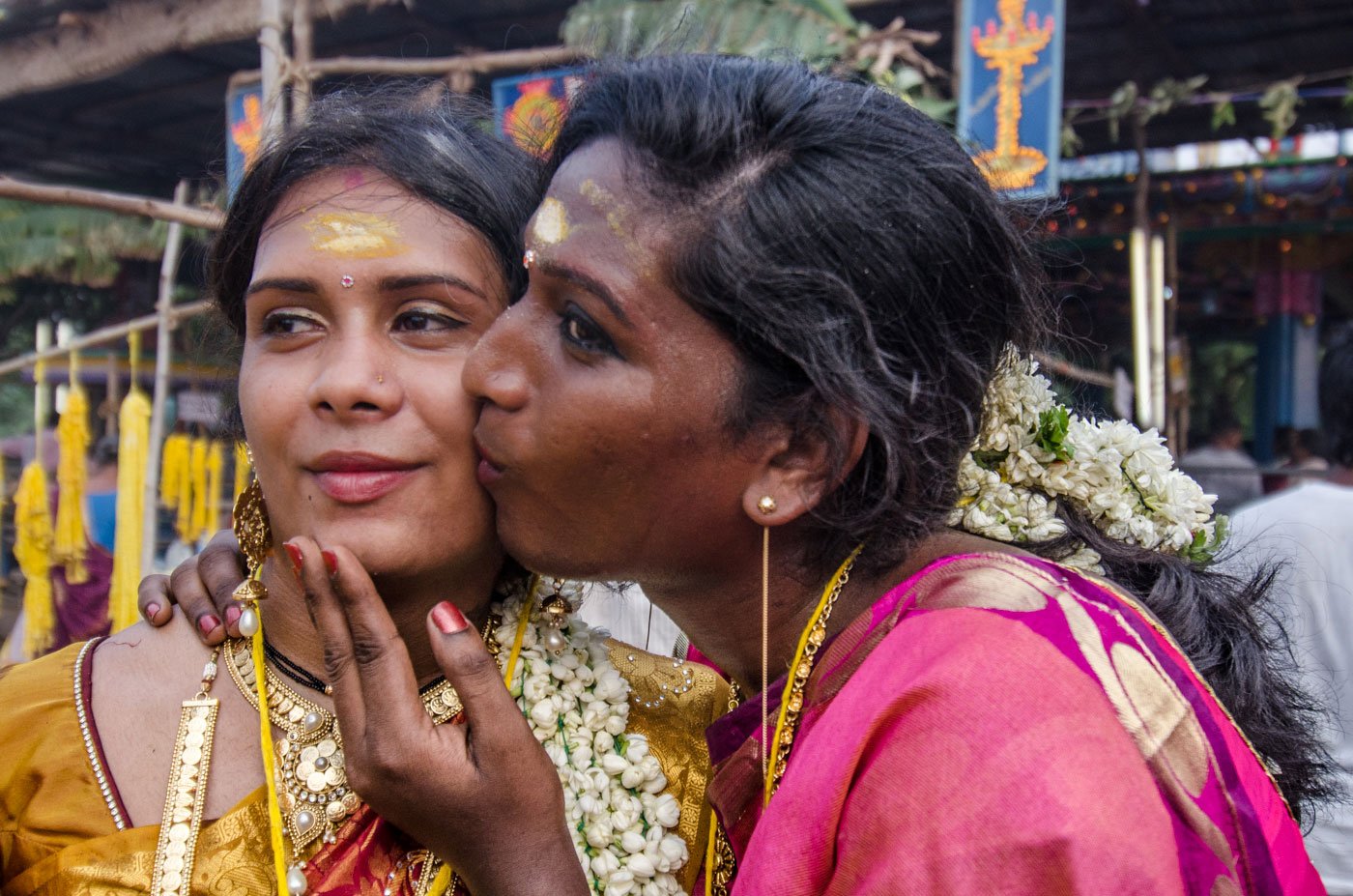
Once they’ve tied the knot, the aravanis rejoice. Pinky (right), in a gleeful moment, kisses her best friend and sister-bride Mala
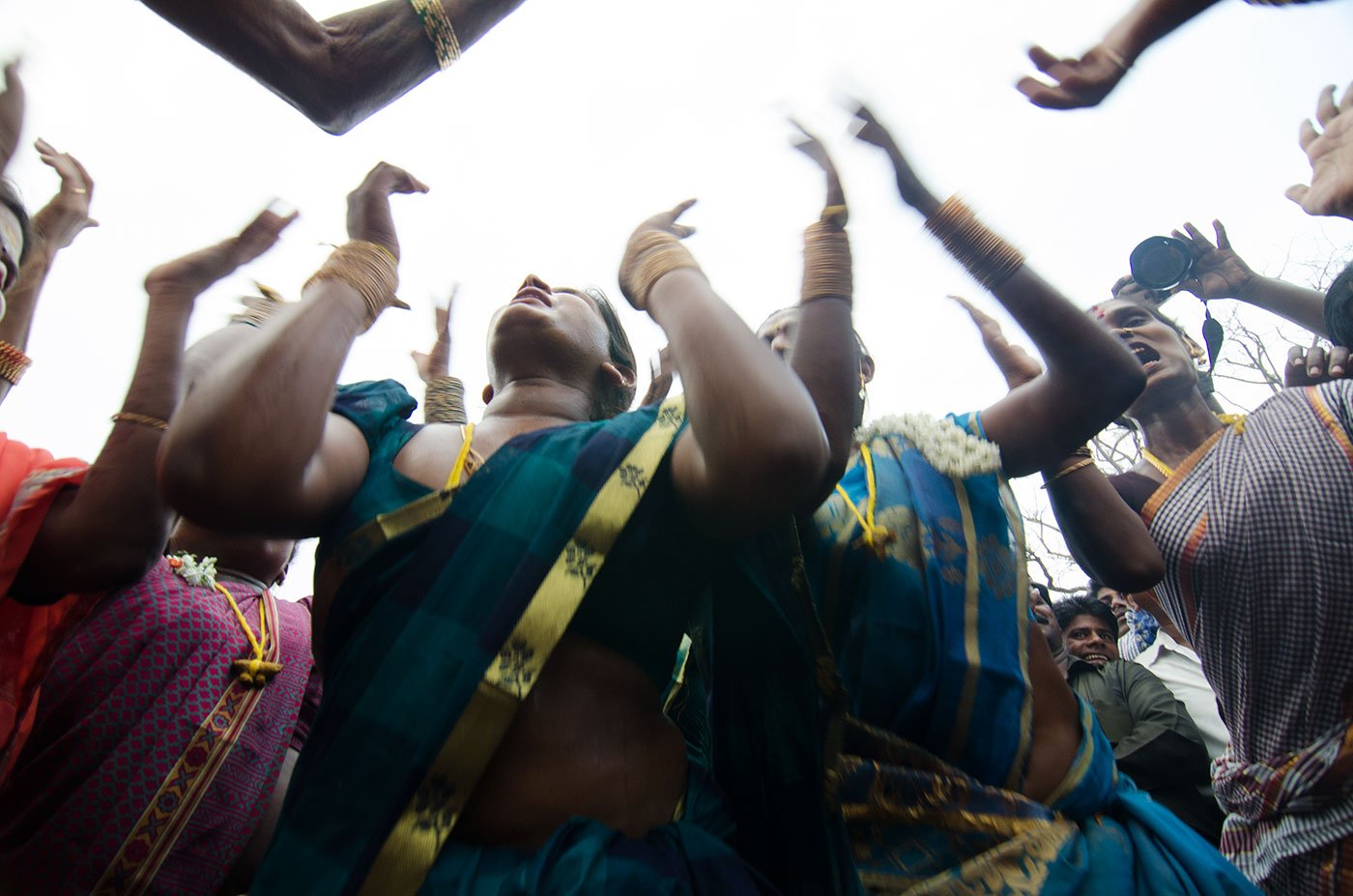
The wedding ritual is complete, and it’s now time for some revelry. The aravani brides break into song and dressed in bridal attire, continue the celebrations all night
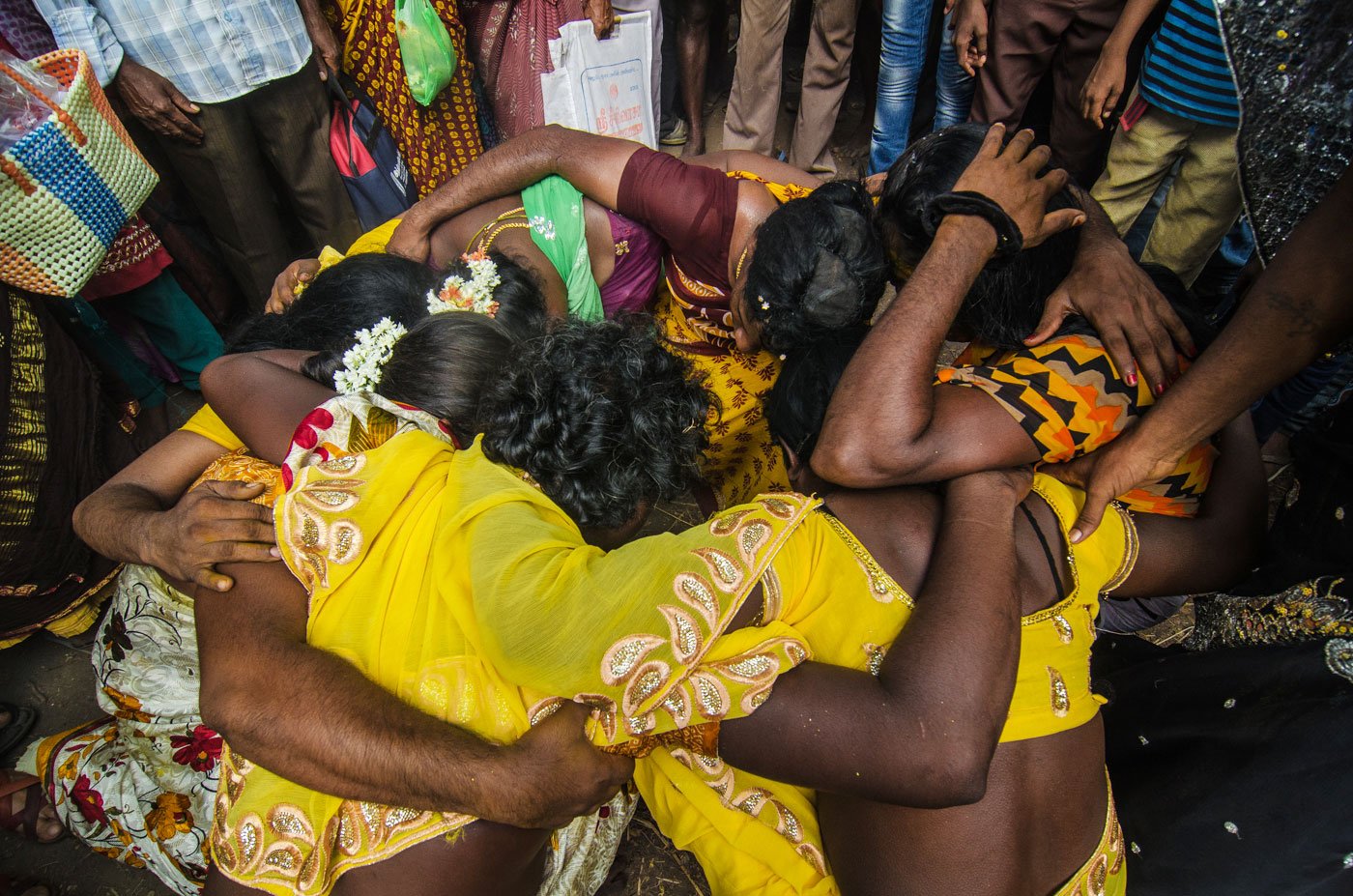
The next morning, the last day of the festival, it’s time for the ritual of Aravan’s sacrifice. And the aravanis begin mourning – they gather together, form circles and cry loudly
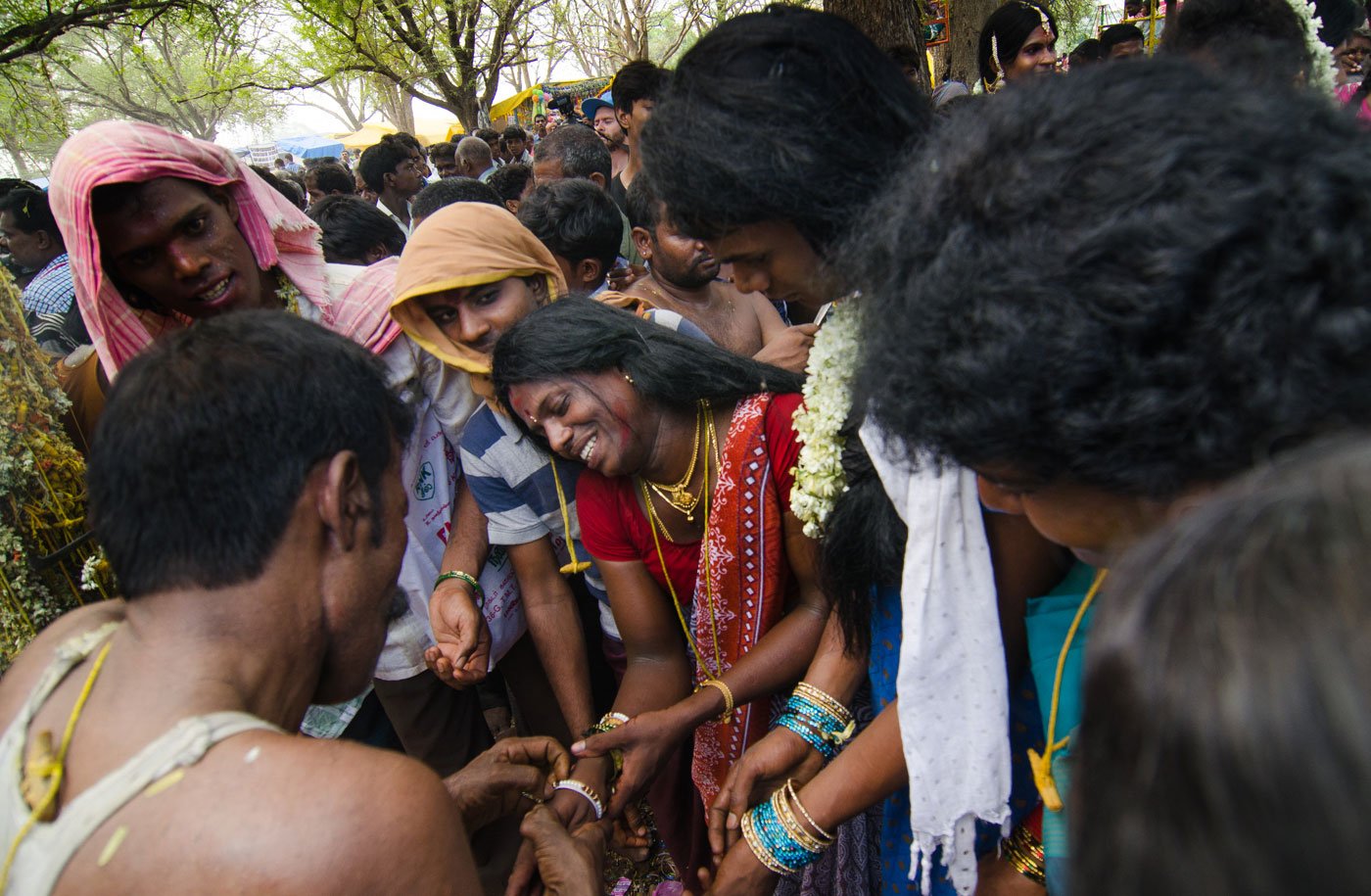
A priest breaks an aravani ’s bangles – one of the rituals of widowhood. Visibly distraught, she begins to sob. Vistors stand around watching
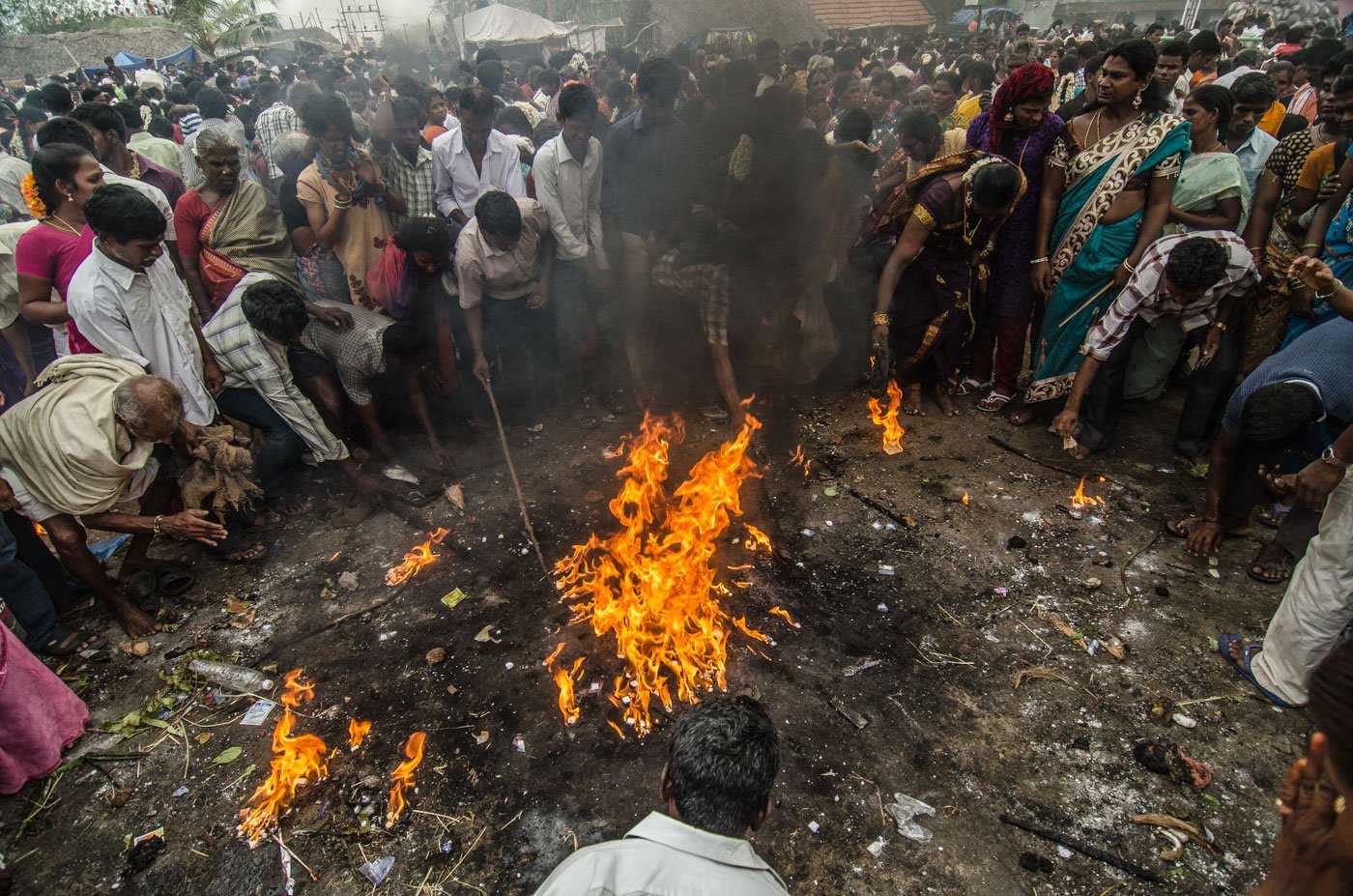
The priest cuts off the aravanis ’ thalis and throws them into a fire outside the temple. People from nearby villages, here for the festival, gather around
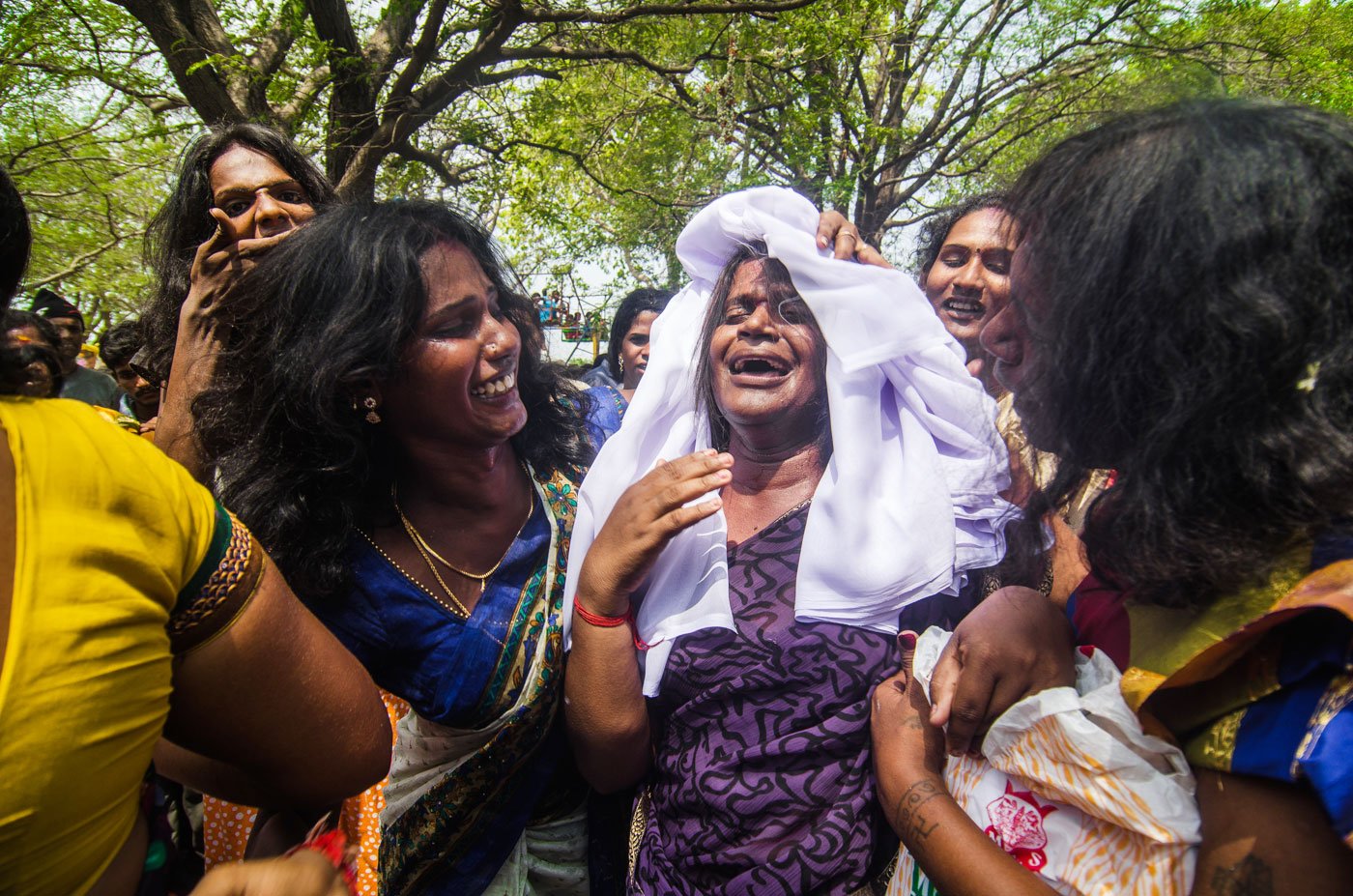
The aravanis must now shed their bridal attire and wear a widow’s whites. Here, an aravani weeps soon after the priest gives her a white saree
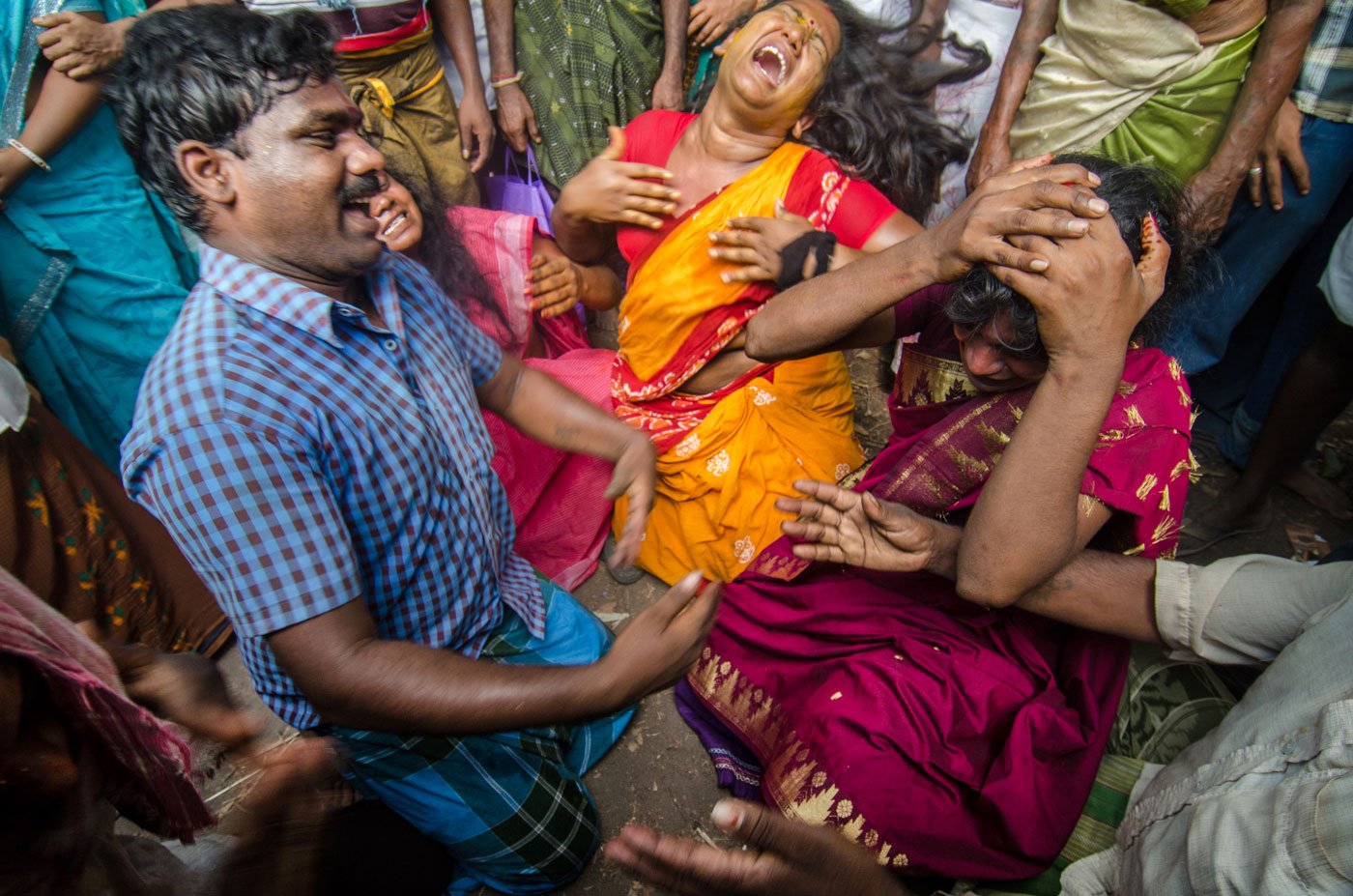
Aravanis beat their chests and hit their heads, expressing pain over Aravan’s sacrifice
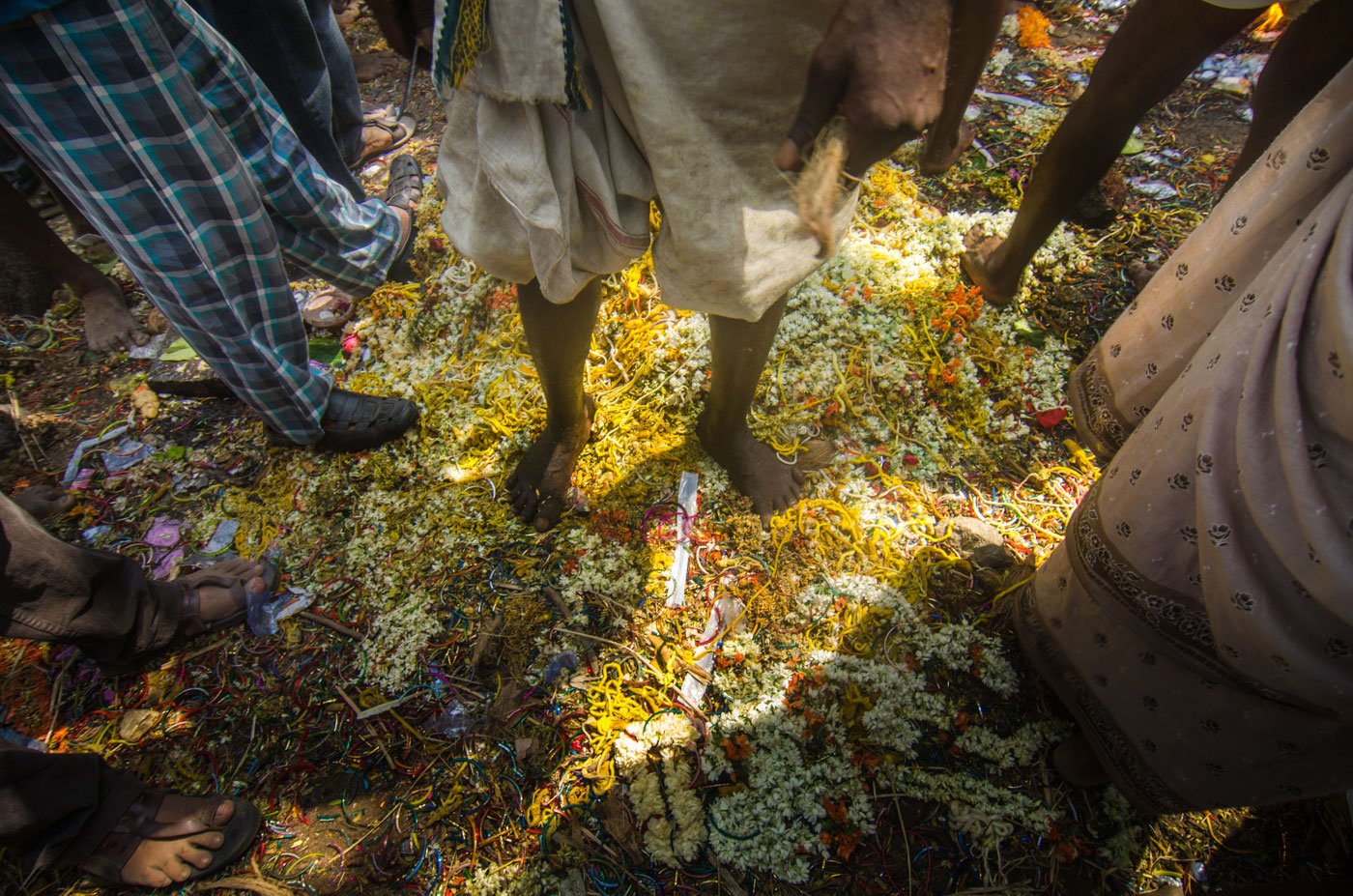
Near the temple are the remnants of what used to be signs of marriage – scattered garlands, broken bangles and cut up thalis
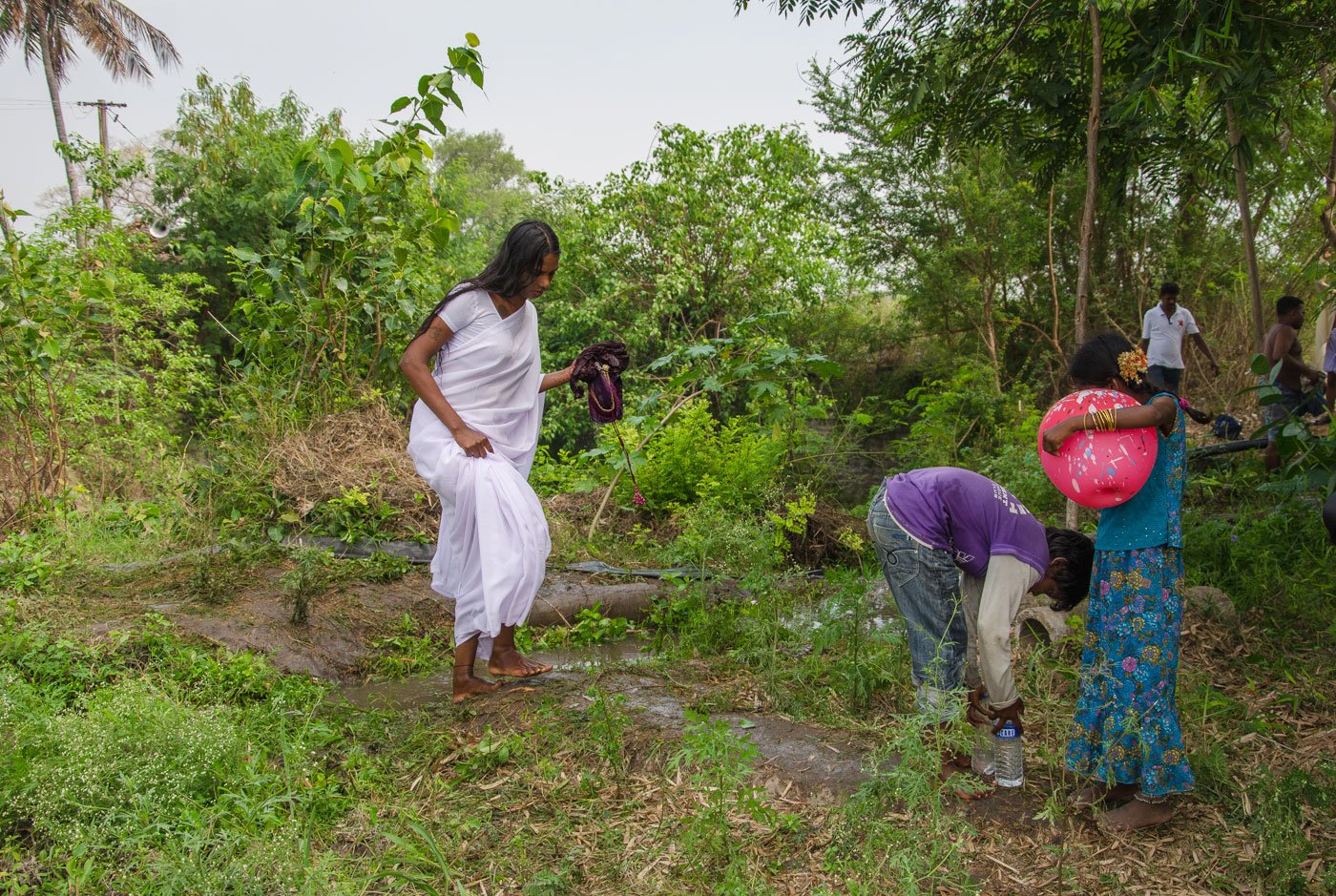
An aravani , dressed in white, walks away from the temple; some continue to mourn the death of Aravan for up to a month
An early version of this photo essay was published on the photographer's website .
